It is Thursday morning as I write this.
I am thinking about Emmanuel Ndubuisi Egbo, the little-known Nigerian International goalkeeper (represented the country about a dozen times between 1998 and 2002), who played his professional football mostly in the little-known Albanian League, but has emerged recently as a history-maker in the annals of European football and of Black/Africans. I am thinking about the state of the world; about the way a small virus continues to humble mankind and bring him to his knees. I am thinking about how, indirectly, this still unfathomable virus has brought the vexatious matter of the Black race to the front-burner of global discourse and agitations.
In recent days, I have been watching Pep Guardiola, one of the most respected football managers in the world today, in a recorded sound bite on CNN television, apologizing on behalf of all White people for the way Blacks have been treated in the world for 4 Centuries and how ashamed he feels as a Whiteman. It is simply incredulous to observe this sudden turnaround in the struggle of Blacks to find respect and equality in this world.
In my small and insignificant contributions, several times in my newspaper columns in the past few years, I drew the attention of readers to the continuous barricade of Black athletes in Europe from entry into senior managerial and technical areas of sports. Why are Black players considered good enough to play the game, but never good enough to manage it?
I was almost a lone voice then. The great influencers of sports in Africa, the journalists, kept silent as if they did not understand what was going on, victims also of the indoctrination of subservience to a superior race?
I wrote about Black players suffering racial slurs and chants that remained largely unpunished by world sports governing bodies that appear to be silently complicit in perpetuating the ugly practice, because of the colour of their skin. The best that has been done is a slap in the wrist of offenders, all talk and no action.
Here are some revealing facts in football.
At the World Cup, France ’98, when the number of participating African teams was increased from 3 to 5, no Black African coach led any of the 5 African teams. All the coaches were White.
Also Read – Napoli President: ‘We paid €80m for Osimhen’; Striker On ‘€4-4.5m’ Per Year
In 2010, when an African country, South Africa, hosted the World Cup for the first time in history, there was not a single African coach was at the party.
At Russia 2018, Aliou Cisse of Senegal was the only Black /African coach amongst the 32 managers that participated in a championship won by France, a country that paraded 10 players of Black African descent.
Since France ’98, 5 championships later, there have only been 7 African coaches leading African teams only.
The worst case is in Africa itself. At the last African Cup of Nations football championship in 2017, with 16 countries in attendance, there were 13 White foreign coaches and only 3 Africans.
Why, why, why? Why is it that Black players are the toast of some of the best teams in Europe, yet none of them is good enough to become a manager after their careers, even when they acquire all the necessary certifications and diplomas like their White counterparts that have monopolized management through the over 150 years of European football at the highest level?
I can go on and on. It is obvious that this is the product of 400 years of physical and mental enslavement and the failure of the Black race to break down the barriers of prejudice and racism.
The present architecture of the world is not designed so the Black person can easily get to the top of anything. He occasionally does so but not without tears, sweat and blood, and by accident more than any systemic design. The evidence is all around us.
Thanks to events around the present pandemic, we are witnessing the birth of, probably, the greatest movement of the Black race in history that will finally unshackle him from slavery and racism. Now, entire sports teams ‘take the knee’, raise clenched fists in the air, adorn tee shirts and jerseys branded with the inscription ‘Black Lives Matter’. There is an unstoppable avalanche building up around the world in ongoing protest marches in major Western capitals of the world.
Emmanuel Ndubuisi Egbo adds a dimension to all this.
The Nigerian emerges from the shadows into the limelight of European football as manager of KF Tirana, a premier division Club in Albania. He leads the club to win the 10-club domestic league, and will now lead it again into the prestigious UEFA Champions league next season. He may thus make history and become the first African to achieve both feats.
Also Read: 7 Nigerian Players Who Have Won English FA Cup Title
So, we congratulate and celebrate Emmanuel Ndubuisi Egbo for breaking the Calabash, and in doing so, we ask other relevant questions: why it has taken this long, whether this is a one-off ‘accident’, what can be done to right the injustices of the past and to create a new world with Blacks as equal partners post-covid 19?
The future is going to be a global War, but without guns. Power will never be surrendered to Africans on a platter, because it is never surrendered, but taken by ‘force’.
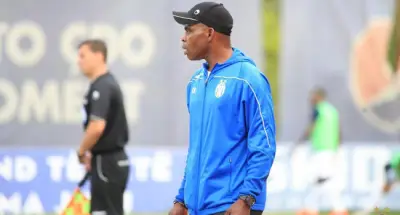
I am thinking. When I chose to contest for political office in Ogun State two years ago, my mission was to use my homestead in Nigeria as the site for the establishment of the epicentre of a new Black and African Consciousness, Civilisation and Culture in the world (what Ghana has embarked upon now) to be driven by specific projects designed to catalyse, facilitate, enforce and accelerate the achievement of that vision. I wanted to promote the revival of the World Black and African Festival of Arts and Culture as the fulcrum of the movement, held in a new format that would involve all aspects of leisure and entertainment – dance, drama, music, film, sports, literature, etc – and where every participating Black and African country would independently choose the scope of their involvement in the annual cultural festival and fund it. That way rather than be a burden on the host country, it will be a great economic, social and political development catalyst.
This morning, I am thinking all of that, plus Chief Moshood Kashimawo Olawale Abiola and his call for reparation for 200 years of Black slavery in the 1990s. I hear that same call reverberating around Western capitals today as the Black movement gathers momentum. That great man saw tomorrow.
I am thinking this Thursday morning about many things! The underlining theme, however, is that the time is here when, truly, Black Lives will start to matter.
Goodnight, Chukwuma Igweonu!
He was a great Nigerian inside-forward who was so good that that a song was waxed in his name by a popular Onitsha-based Highlife musician (I don’t remember his name) when he featured prominently for Jos Highlanders, Port Harcourt Red Devils, Enugu Rangers, and the national football team of Nigeria, the Red Devils. I can recall a part the sweet melody and a few lyrics of the song as if it was yesterday:
“Chukwuma shoot am o,
It is a goal o, Dike,
Chukwuma shoot am o,
It is a goal o”.
I was too young to have watched him play but his name was everywhere, mostly in radio commentaries of matches by Ishola Folorunsho. I met him, however, in the late 1990s when I organised the first ever reassembly of all surviving ex-internationals in the country at the National Stadium, Surulere, Lagos. I hosted the two days and it brought together a lot of the old greats from the group of the 1949 UK Tourists to that present: Justine Onwudiwe, Isaac Akioye, Okwudili Daniel, Cyril Asoluka, Fabian Duru, Amusa Shittu, Johnny Egwuonu, Dan Ajibode, Ismaila Mabo, Emmanuel Okala, Christian Chukwu and Chukwuma Igweonu, amongst others.
It was on that occasion that I met the goal-scoring machine and football legend called Chukwuma Igweonu. The large contingent from outside Lagos were accommodated at Dr. Victor Olaiya’s Stadium Hotel, behind the national stadium. The old crooner was a great football fan. He knew most of the players personally during their playing days. For the two nights that they spent in Lagos, Dr. Victor Olaiya spiced up the evenings with LIVE performances with his band of his evergreen, delightful Highlife songs.
It was the first and the last such assembly in Nigerian football history.
Last Tuesday, July 27, 2020, at the age of 83, Chukwuma Igweonu joined his ancestors in a hospital in Awka, Anambra State.
On behalf of all generations of Nigerian footballers, I send condolences to the family, and pray that he finds eternal, peaceful rest as he journeys back to his Creator.


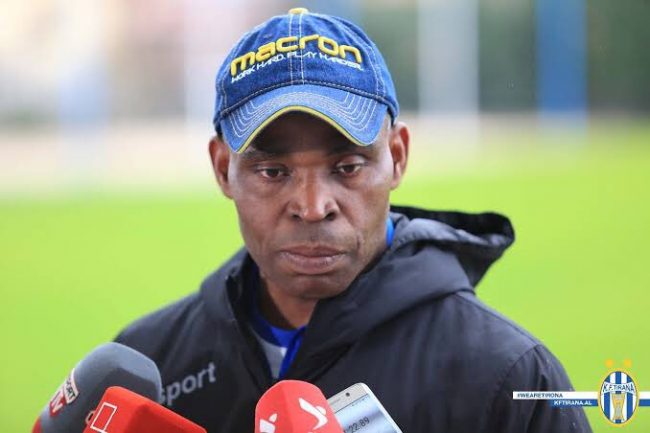
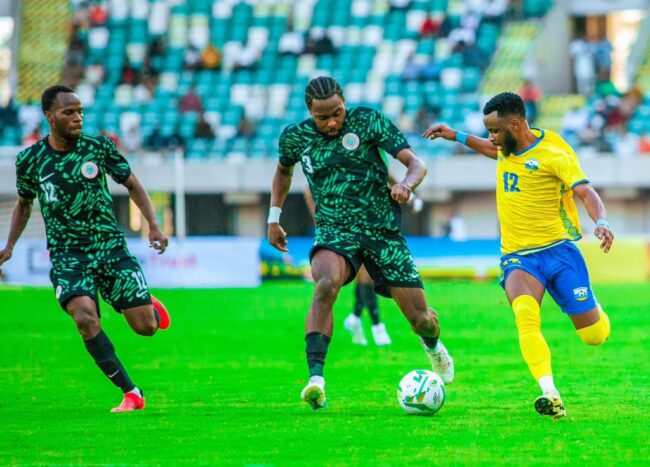
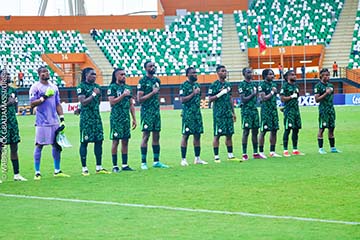
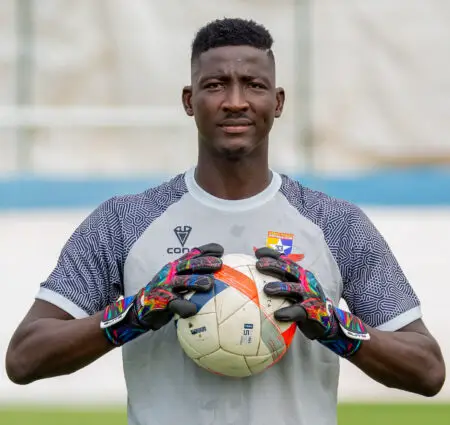
1 Comment
Wow
this is the first article from segun that have my 100percent vote.
how can one explain how only 3 african coaches toke part in an AFCON tournament.
how do we now expect the whites to now consider coaches that couldn’t work the magic in the own land to work it in a foreign land.
but again it all comes down to how the black coaches are.why not do it in africa when not given the chance in europe?
sentiment apart,i haven’t seen any coach doing wonders in africa for some time now(apart frm that algerian coach).
how can we now prove that they are good enough but are not given the opportunity?
i think every thing should start at home.
a local proverb says “when you start madness na your house u go first burn so that they will know that it is serious”
i know racism is real but when your qualities are obvious,you will reduce their chances of hiding under the “black coaches are not good enough” believe.